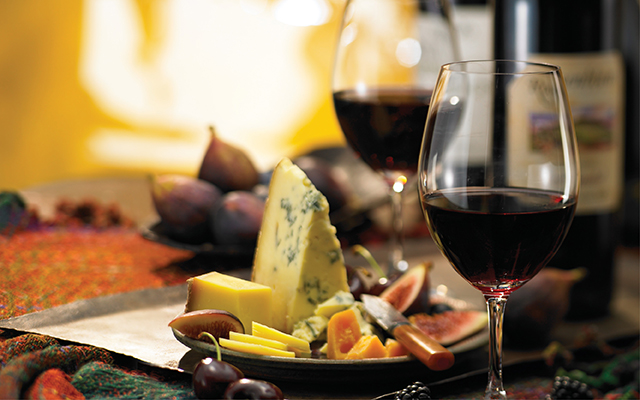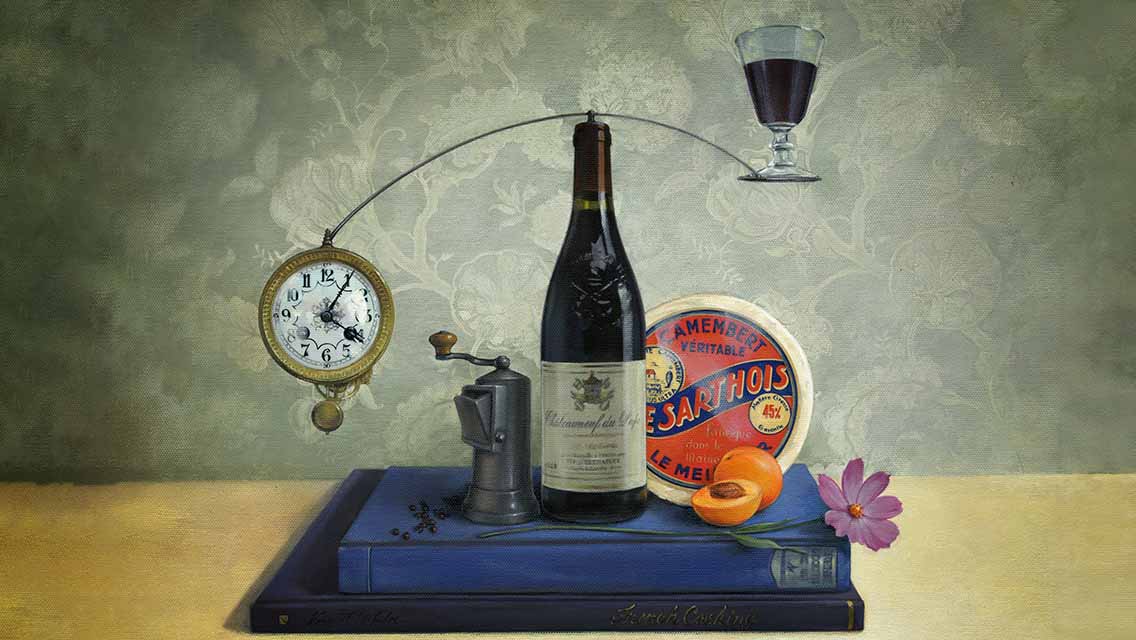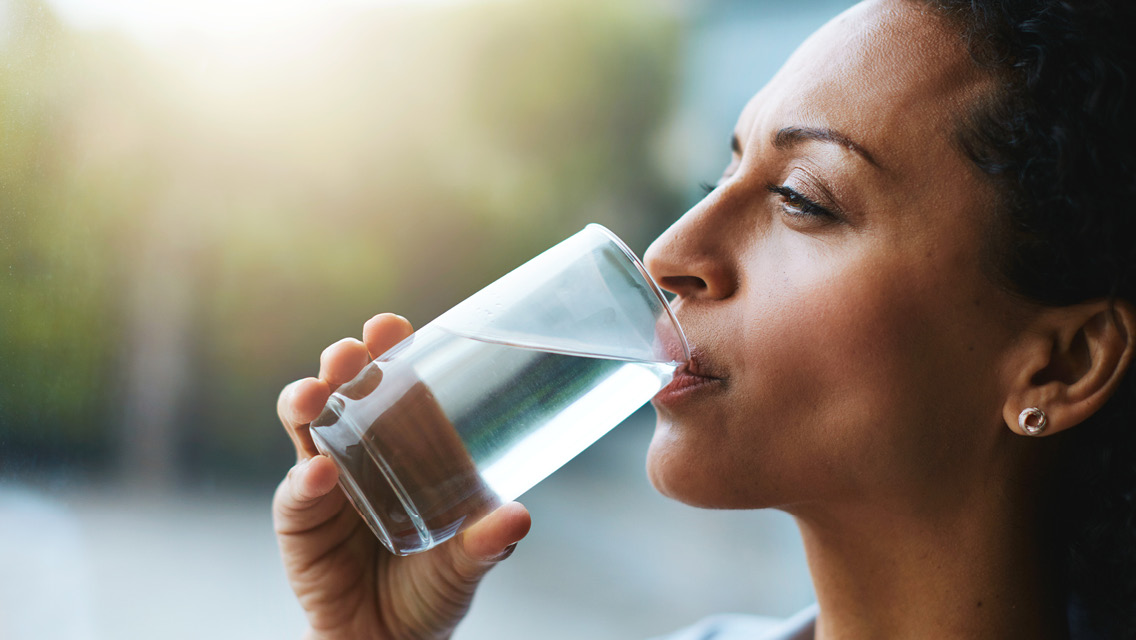The United States consumes more wine than any other country in the world. According to the Wine Institute, Americans consumed 949 million gallons of wine in 2016. But, it can still be challenging to pick out the right bottle of wine.
Wine maestro RJ Judalena — the owner of Wine Republic in Excelsior, Minn.— thinks people should focus on sustainable, organic, and biodynamic wines.
“In my opinion, organic food nourishes you in a way that no conventionally grown food can, and the same can be said of organic wine.” Judalena says.
We asked Judalena to help us suss out the differences in wine so we can be more intentional about our consumption. Here’s what he had to say:
Experience Life | What is biodynamic, sustainable, and organic wine?
RJ Judalena | Sustainable wines typically include organic agriculture but are not necessarily certified. Being sustainable refers to a range of practices that are not only ecologically sound but also economically viable and socially responsible. Such practices include utilizing energy efficiency, water conservation, clean energy growing and winemaking processes, and being mindful of good labor practices.
Organic wine is wine created using the principles of organic farming, which excludes the use of synthetic fertilizers, pesticides, herbicides, fungicides, and GMOs. Some producers farm organically while others are USDA-certified, which requires wines bottles with very low levels of sulfites (less than 20 ppm).
Biodynamic wine is also grown without chemicals and GMOs. Biodynamic winemakers are committed to holistic views of their wineries and their connections to the ecosystem, the earth, and beyond. They aim for their vineyards to be self-renewing and self-sustaining by following the practices based on Austrian philosopher Rudolph Steiner.
EL | How does it differ from regular wine?
RJ | In conventional winemaking, chemical fertilizers are used to promote greater yields and protect against disease. These same chemicals are then absorbed by the roots of a vine and then pass through the leaves and stalks of fruits, eventually making their way into the finished wine. The chemicals also damage soil and water quality, so many wine growers are looking to go organic so they can pass their vineyards down to generations to come.
EL | Does biodynamic wine create a healthier environment?
RJ | Absolutely. In conventional farming, artificial chemicals affect the nutrients and the tiny microcosm of microbes and organisms in the soil. The monoculture that is a vineyard depletes the soil incredibly, making it poorer. With organic practices, you are creating a sustainable environment for future generations. If you pick up soil from a conventional vineyard versus a biodynamic one, you can feel, see, and smell the difference.
EL | Is taste compromised?
RJ | To this day there have been no formal tests regarding the taste of petroleum-based chemicals on food. Remember that there is a big difference between taste (the tongue can only register five: sweet, bitter, sour, salty, and umami) and flavor (a combination of smell/olfactory and taste). Only recently has there been any real scientific breakthrough regarding taste.
Some professional tasters pick up more metallic flavors, but I think the real difference is in the feeling — the dreaded wine headache caused by the additional chemicals involved. California has just named Roundup as a cancer-causing agent; it contains glyphosate, an endocrine disruptor that can affect the brain. The anecdotal evidence is when you go to Europe and drink a ton of wine and don’t get the headache, but in the United States it’s a crapshoot.
For most people, the choice to drink an organic wine is in line with how one eats. As with organic produce, beef, etc., we want to feed our bodies with wine and food that tastes great and is better for us — the flavors are pure and delicious.
EL | Is this a new process or an old one?
RJ | Since the introduction of chemicals only started in the 1960s, and wine has been made more than a thousand years before that, it is chemical-based farming and viticulture that is new. We only started spraying after chemical conglomerates could no longer sell chemical agents to the Army during the Vietnam War. Then these chemical companies turned their poison on the American public.
EL | How does this type of alcohol affect the consumer’s body differently?
RJ | Alcohol crosses the blood–brain barrier quickly. This is why if you have not eaten you will get drunk very fast. The alcohol carries beneficial polyphenols and resveratrol, but if you’re drinking conventionally made wine you will also pick up all the petroleum-based pesticides, herbicides, and fungicides.
EL | What areas of the world produce biodynamic and organic wine?
RJ | There are biodynamic and organic wines produced in every great wine region in the world. One only has to look.
EL | What are three reds, whites, rosés, and sparkling wines that you recommend? A variety of price ranges would be great.
RJ |
Red:
Ridge Vineyards Sonoma County Three Valleys
G.D. Vajra Barbera d’Alba
Le Château Dutruch Grand Poujeaux
White:
Domaine Louis Max Mercurey “Les Rochelles”
Néboa Rías Baixas Albariño
Ant Moore Sauvignon Blanc
Rosé:
Château Gassier ‘Le Pas du Moine’ Côtes De Provence Rosé
Pratsch Rosé Niederösterreich
Elk Cove Vineyards Pinot Noir Rosé
Sparkling:
Bérêche & Fils Champagne Brut Réserve
Terre di Marca Prosecco Rosé, Unfiltered
Domaine des Baumard Crémant de Loire Carte Turquoise




This Post Has 0 Comments